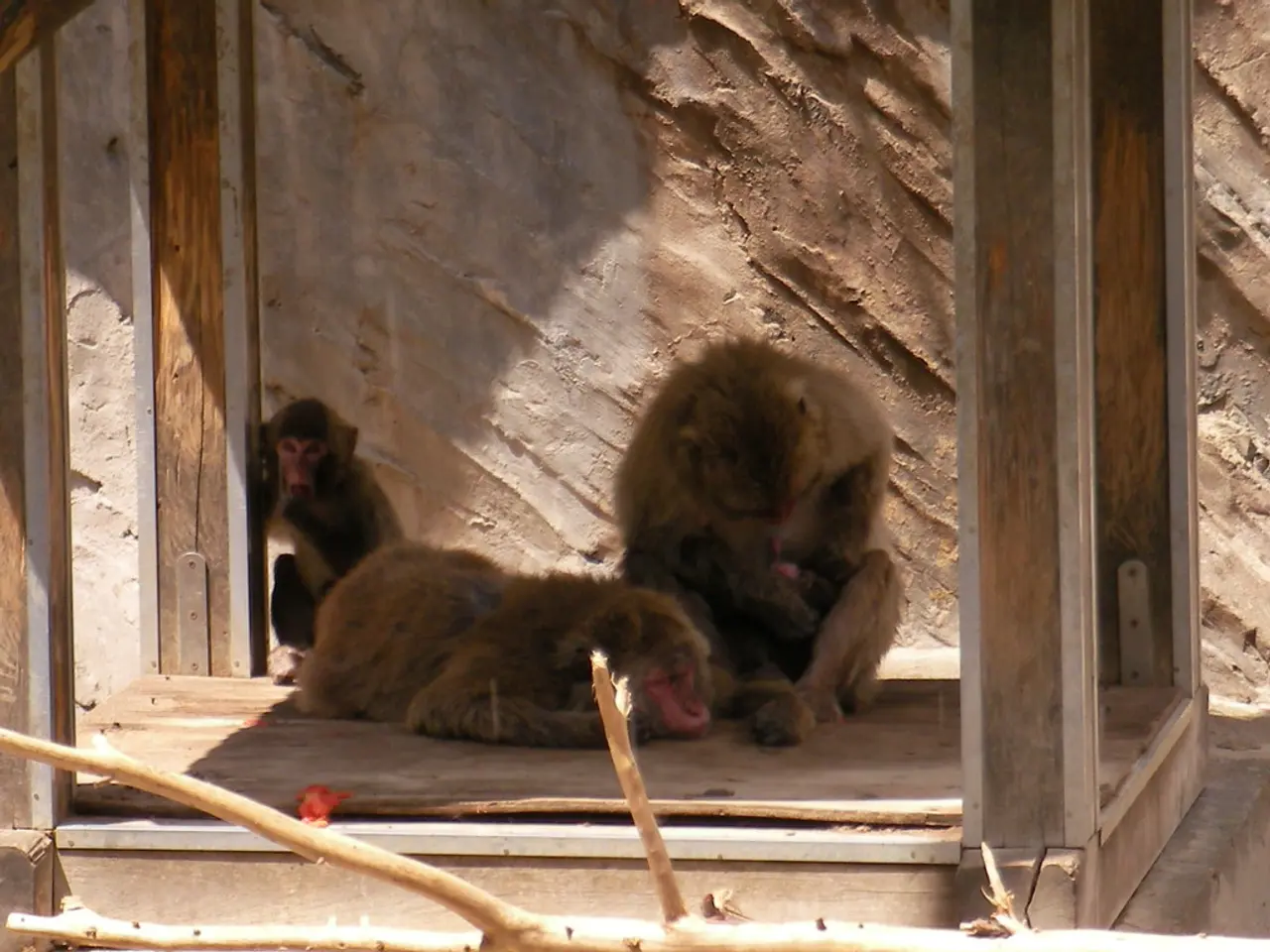Zoo in Germany euthanizes 12 baboons due to lack of space, sparking opposition from animal welfare activists.
The Tiergarten Nürnberg Zoo in Germany was forced to euthanize 12 healthy Guinea baboons this week, following years of attempts to control the growing population and find alternative solutions. The decision was made due to severe overcrowding in the baboons' enclosure, which housed 43 animals, far exceeding the designed capacity of 25.
The zoo had previously attempted to address the overpopulation issue by sending 16 baboons to zoos in Paris, China, and Spain. However, these zoos have since reached their capacity, leaving the Nürnberg Zoo with no viable options for relocation. An attempt at contraception for the baboons was abandoned due to its lack of effectiveness.
The zoo emphasized that the euthanized baboons were healthy, non-pregnant animals and not part of any scientific studies. They were killed by shooting, with samples taken for scientific purposes afterward, and their bodies were fed to the zoo’s predators.
The decision to euthanize the baboons has sparked significant backlash from animal rights groups who criticized the zoo's longstanding breeding policies as irresponsible and unsustainable. They argue that the killing was avoidable and unlawful. Activists even staged protests by climbing into the zoo and gluing their hands to the ground.
The zoo's decision was made in consultation with veterinary, environmental, and conservation authorities, including the coordinators of the European Association of Zoos and Aquariums (EAZA). The main reasons behind the euthanasia were severe overcrowding, failed attempts at population control, consultation and approval by relevant authorities, and animal welfare concerns due to unsustainable numbers in the given space and group dynamics.
Despite the backlash, the zoo had stated that it explored offers to take in some of the baboons but was unable to make any of them work. Animal rights groups have announced plans to file a criminal complaint regarding the zoo's actions. The zoo closed for the day on Tuesday for unspecified "operational reasons," and on Tuesday afternoon, several activists were detained after forcing their way into the zoo grounds and gluing themselves to the ground.
This situation reflects broader challenges in zoo population management when breeding programs result in more animals than can be sustainably housed, and alternatives to culling are limited or unavailable. The incident serves as a reminder of the complexities involved in maintaining a balance between animal welfare and conservation efforts.
- The euthanized Guinea baboons from the Tiergarten Nürnberg Zoo, though healthy, now serve as scientific samples, contributing to research in various fields, including health-and-wellness and science.
- In light of the recent incident, mental-health professionals are working with animal rights activists to provide support and guidance as they navigate the stress and trauma from the protest actions and backlash.
- As the world continues to prioritize fitness-and-exercise, environmental organizations encourage zoos, including those in Europe, to implement more effective population control measures, promoting the sustainability of both the animal populations and their habitats.




